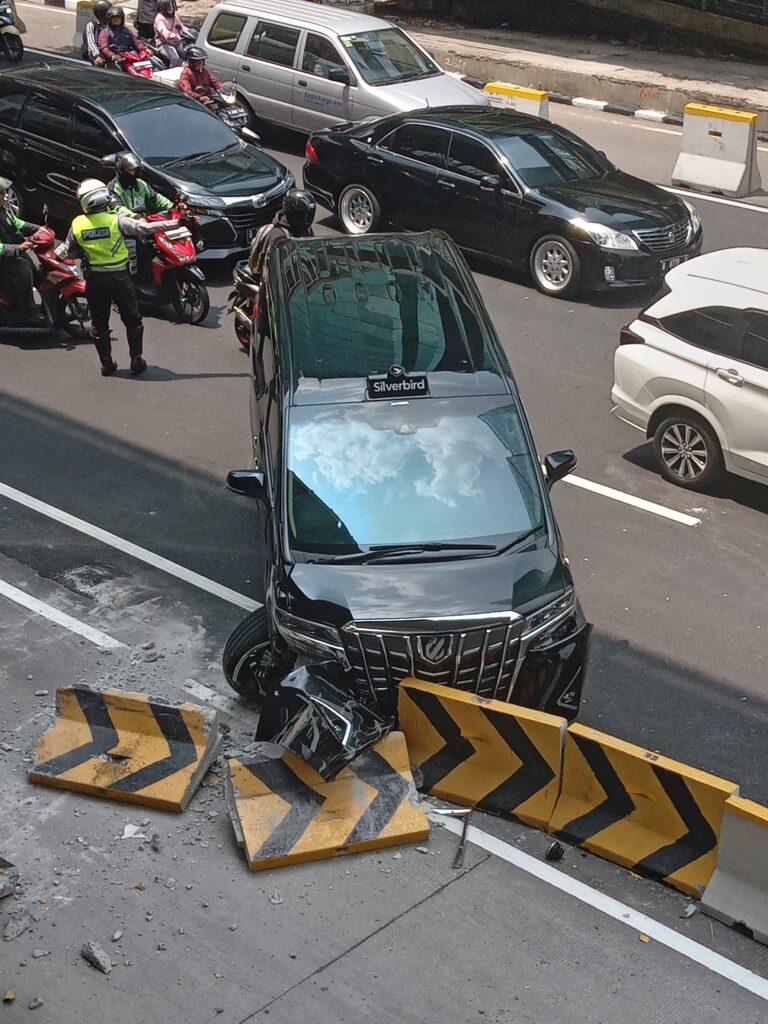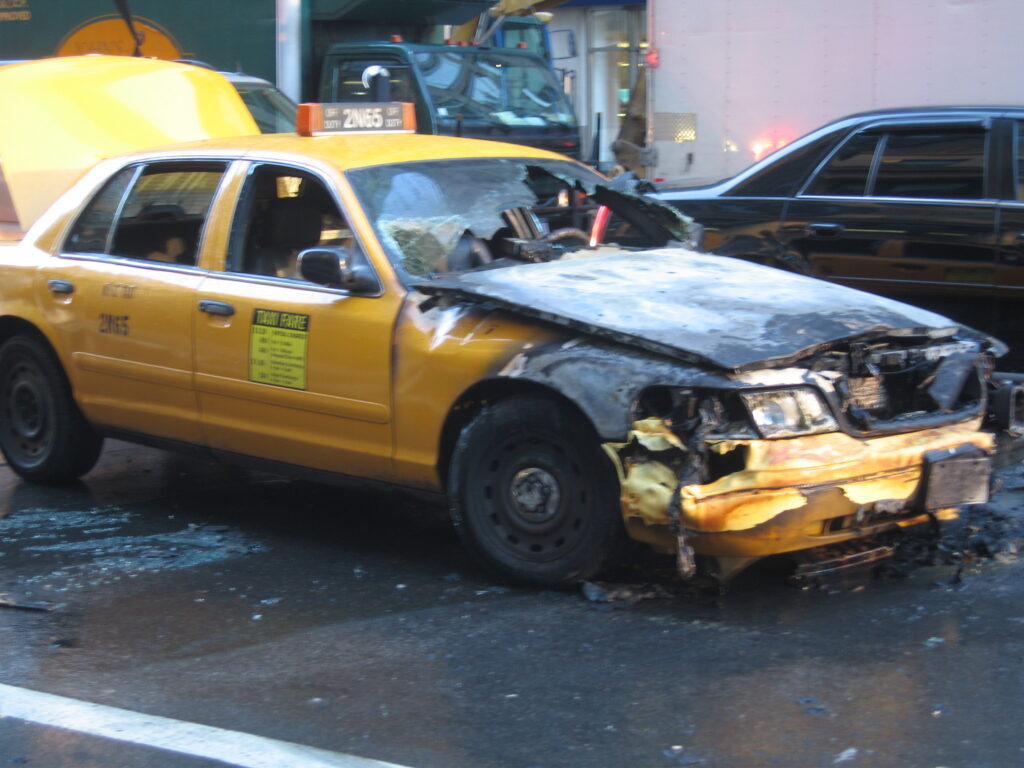Wesley Chapel, Florida, is no exception to the growing popularity of rideshare services like Lyft. The convenience of summoning a ride with a few taps on your smartphone has transformed the way we travel within our community.
Lyft has become a trusted companion for residents and visitors alike, offering a practical solution for reaching your destination, whether it's a shopping center, a local attraction, or simply a ride home.

But as with any mode of transportation, the unpredictable nature of the road can sometimes overshadow the very convenience that Lyft provides. Distracted drivers, adverse weather, or unforeseen obstacles contribute to accidents, and unfortunately, some of these accidents result in serious injuries or even fatalities.
After a Lyft accident, whether you are a passenger, another driver, or a pedestrian involved in an accident, learn about your legal options and seek experienced guidance. Call one of our Wesley Chapel Lyft accident lawyers at Hancock Injury Attorneys at (813) 537-6927 for your free consultation.
Why Choose Hancock Injury Attorneys for Your Uber Accident Claim?
The use of Lyft in Wesley Chapel offers unparalleled convenience, but has increased the potential for accidents with life-altering consequences. The experienced personal injury lawyers at Hancock Injury Attorneys can ensure that, should an accident occur, justice and compensation are within reach for those who need it most.
You need an advocate by your side who comprehends the unique, intricate dynamics of Lyft accident claims in Wesley Chapel. Contact us today. We can help you!
Our Wesley Chapel Office Location and Headquarters
We serve clients in Wesley Chapel, Tampa, Spring Hill, and throughout central Florida. We have offices in Wesley Chapel at 2224 Ashley Oaks Circle, Suite 102-E, Wesley Chapel, Florida 33544. Call the Wesley Chapel office at (813) 537-6927.
Lyft Liability – Who May Be Found at Fault?
The specific circumstances of the accident determine liability in a Lyft accident. The party at fault is the one whose actions or negligence led to the collision.
Here are some scenarios to consider:
- Lyft Driver at Fault: You can hold the Lyft driver at fault if their actions, such as distracted driving, speeding, running a red light, or other traffic violations, caused the accident.
- Other Driver at Fault: An accident involving a Lyft vehicle can result from the actions or negligence of another driver who was not affiliated with Lyft. This could include rear-end collisions, failure to yield the right of way, or running stop signs by the other driver.
- Shared Liability: In many cases, multiple parties share liability. Both the Lyft driver and another driver may share fault for the accident, and the court will assess and apportion the degree of fault accordingly.
- Lyft as a Company: While rare, you might hold Lyft as a company partially responsible. This could occur if a technical issue with the Lyft app distracted the driver or if Lyft's instructions contributed to the accident.
The party at fault in an accident may vary from one case to another, and the circumstances surrounding the accident make that determination. An experienced personal injury attorney can navigate these complexities, protect your rights, and recover the appropriate compensation for your injuries and damages.
The determination of fault in a Lyft accident requires a thorough investigation of the accident scene, witness statements, police reports, and, sometimes, expert analysis. Insurance companies, legal professionals, and, if necessary, the court system play critical roles in assessing and allocating fault in these cases.
Lyft Driver Insurance
Lyft drivers typically have insurance coverage provided by Lyft, which varies based on the driver's activity on the Lyft platform. Lyft's insurance coverage is divided into different periods, and the amount and type of coverage can differ during each period. Here's a breakdown of the typical insurance coverage for Lyft drivers:
Period 1 - App On, No Passenger
- Contingent Liability Insurance: Lyft provides contingent liability insurance during this period. If the driver's personal insurance does not cover an accident, Lyft's contingent coverage can apply.
- Coverage Limits: Up to $50,000 per person for bodily injury, $100,000 per accident for bodily injury, and $25,000 per accident for property damage.
Period 2 - Driver En Route to Pickup
- Primary Automobile Liability Insurance: Lyft's primary insurance coverage takes effect when the driver accepts a ride request and is en route to pick up the passenger.
- Coverage Limits: Up to $1 million for third-party liability for bodily injury and property damage.
Period 3 - Passenger in Vehicle
- Primary Automobile Liability Insurance: This primary insurance coverage continues while the passenger is in the Lyft vehicle.
- Uninsured/Underinsured Motorist Coverage: Lyft provides coverage for bodily injury caused by uninsured or underinsured motorists during this period.
- Coverage Limits: Up to $1 million for third-party liability for bodily injury and property damage. Uninsured/underinsured motorist coverage also applies, but the limits may vary by state.

Lyft's insurance coverage is designed to protect both drivers and passengers in the event of an accident. During Period 1, when the driver's personal insurance may apply first, Lyft's contingent coverage serves as a backup. During Periods 2 and 3, Lyft provides primary insurance coverage with higher coverage limits to protect both the driver and passengers.
Additionally, the coverage for uninsured/underinsured motorists offers protection in cases where another driver is at fault but lacks sufficient insurance.
If an accident occurs while a Lyft driver is on the platform, the driver can file a claim with Lyft's insurance to seek compensation for injuries or damages. The specific claims process may vary by location and the circumstances of the accident. Lyft drivers must understand the insurance coverage and claims process provided by Lyft and report accidents promptly.
Florida Lyft Laws
Florida laws also play a significant role in Lyft accident claims by determining insurance requirements, liability rules, and the legal framework for resolving disputes. These laws affect issues like insurance coverage, liability, and compensation, influencing how Lyft accident claims are handled in the state.
An experienced Wesley Chapel Lyft accident attorney will be familiar with state laws governing these types of accident claims. It is our job to stay up to date on these laws, which may change frequently as these relatively new rideshare services mature. We are well equipped to navigate these complex claims.
How Does a Personal Injury Lawyer Handle a Lyft Accident Claim?
A personal injury lawyer handles a Lyft accident claim by following a structured process to advocate for their client's rights and secure compensation.
Here's an overview of the typical steps a personal injury lawyer takes in handling a Lyft accident claim:
- Initial Consultation: The lawyer meets with the client to discuss the accident, injuries, and potential claims. They assess the viability of the case and explain the legal process.
- Investigation: The lawyer conducts a thorough investigation of the accident. This may involve gathering evidence, obtaining accident reports, interviewing witnesses, and consulting experts.
- Liability Determination: The lawyer assesses liability by determining who was at fault for the accident, whether it was the Lyft driver, another driver, or a combination of factors.
- Insurance Claims: The lawyer assists the client in filing claims with the relevant insurance companies, including Lyft's insurance, to seek compensation for medical expenses, lost wages, and property damage.
- Negotiations: The lawyer engages in negotiations with the insurance companies to reach a fair settlement. They may negotiate on behalf of the client to maximize compensation.
- Lawsuit Filing: If a settlement cannot be reached, the lawyer may file a lawsuit on behalf of the client, initiating the legal process.
- Discovery: During the legal process, both parties exchange information through the discovery process. This may include depositions, document requests, and interrogatories.
- Mediation/Arbitration: In some cases, the lawyer may participate in mediation or arbitration to resolve the dispute before going to trial.
- Trial Preparation: If the insurer won’t settle, the lawyer prepares for trial, gathering evidence, identifying witnesses, and building a strong case.
- Trial: The lawyer represents the client in court, presenting the case to a judge and jury, and arguing for the client's right to compensation.
- Appeals (if necessary): If either party is dissatisfied with the trial's outcome, the lawyer may handle any appeals.
- Settlement or Judgment: Depending on the case's outcome, the lawyer helps the client either secure a settlement or enforce a judgment awarded by the court.
Throughout the process, the personal injury lawyer provides legal counsel, guides the client, and fights to protect their rights and interests. Their goal is to ensure that the client receives fair compensation for injuries and losses sustained in the Lyft accident.
Florida Statute of Limitations
It's important to be aware of the statute of limitations for personal injury claims in your state. Filing your claim within the designated time frame is crucial. In Florida, the statute of limitations for a personal injury or wrongful death claim is typically two years. If you don’t file your claim within the required timeframe, you may lose your right to seek compensation.
Possible Compensation for Lyft Accident Claims
In Lyft accident claims, compensation may vary based on the specific circumstances of the accident and the injuries sustained.
Compensation can include the following elements:
Non-Fatal Lyft Accident Claims
- Medical Expenses: Compensation for medical bills, including hospitalization, surgeries, doctor's visits, medications, and ongoing treatment.
- Lost Income: Reimbursement for income lost due to the accident, including past and future earnings.
- Property Damage: Coverage for repair or replacement of damaged vehicles or personal property.
- Out-of-Pocket Expenses: Reimbursement for costs related to the accident, such as transportation, rental cars, and home modifications.
- Pain and Suffering: Compensation for physical and emotional distress.
- Emotional Distress: Damages for significant emotional trauma or psychological suffering.
- Scarring and Disfigurement: Compensation for permanent physical scars or disfigurement.
- Loss of Enjoyment of Life: Damages for the inability to engage in activities or enjoy life as before the accident.
- Loss of Quality of Life: Compensation for a reduced overall quality of life due to the accident.
Wrongful Death Claims

Wrongful death claims apply in cases where a Lyft accident results in a fatality, and they address the unique losses experienced by surviving family members. Surviving family members may be entitled to compensation for funeral expenses, loss of financial support, and the emotional impact of the loss suffered by surviving family members.
The availability and amount of compensation depend on the extent of injuries, liability, and the insurance coverage.
An experienced personal injury attorney can explain the potential compensation available in your specific Lyft accident claim and recover the appropriate compensation for your injuries, losses, or wrongful death claims.
Contact Hancock Injury Attorneys
If you've been involved in a Wesley Chapel Lyft accident, don't navigate the complex legal process alone. Hancock Injury Attorneys has a proven track record and expertise in handling rideshare accident claims involving Lyft drivers.
Contact us now to protect your rights and recover the maximum compensation for your injuries and losses. Our compassionate and skilled legal team is dedicated to assisting you throughout this challenging time. Reach out to Hancock Injury Attorneys for a free consultation by calling our Wesley Chapel office at (813) 537-6927 or filling out the contact form on this website.